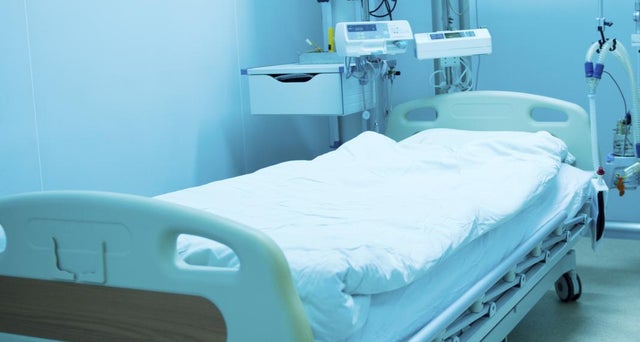
Healthcare | Cúram Sláinte:
More than 350,000 people are waiting for a first consultant-led appointment. More than 260,000 people are waiting on Hospital appointments for more than a year. That’s 1 in 7 people in this state whose health is deteriorating while waiting on a Hospital waiting list. This is criminal. Its intolerable and its makes a lie of the principle of a free health service.
Astoundingly the North of Ireland block grant is decided by using the previous year's budget and then adjusting it based on increases or decreases in comparable spending per person in England.
If spending on healthcare rose by £100m in England, the Norths spend will increase by an extra £3.4m as our population is 3.4% the size of England's. That our health budget is determined because of a decision made for English patients is shocking.
It means between 2014 and 2020, the number of people on waiting lists here increased from;
127,030 to 308,486 (143% increase) for those in acute and elderly care waiting for a consultant-led appointments
17,209 to 31,700 (84% increase) for in-patient treatment
32,129 to 65,235 (103% increase) for day case patients
At the same time, the amount of money spent on these waiting lists has been cut by 62%, from £97m in 2013-14 to £37m in 2019-20.
Because of Stormont’s shut down of much of the Health Service during the Covid Crisis there is now a tidal wave of patients with complex needs seeking treatment in emergency departments. But his has not been met with increased funds.
Our Emergency Departments are overwhelmed. Large numbers of patients including the elderly are waiting in excess of 24 hours for an inpatient bed. Ambulances are stranded unable to handover patients. This is causing delays in responding to emergency calls.
We’re 3,000 nurses short of what we need. Due to the rate of inflation real wages are falling. Staff are exhausted.
By means of a freedom of information request, Aontú Councillor Emmet Doyle in Derry found that between 2010 and the start of the pandemic, Sinn Féin, the SDLP, the DUP, the UUP and the Alliance Party, cut 887 beds from the hospital services in the North. This has proved catastrophic in the teeth of the Covid pandemic as patients had to be treated in hospital car parks.
Aontú seeks:
Return the 887 beds removed by the Stormont Establishment to the Health Service.
The delivery of a fully funded mental health strategy to support those who have suffered so much over the last two years
€1.5bn in investment into the reduction of hospital waiting lists to ensure that no one has to wait longer than a year for the treatment that they need.
A comprehensive workforce plan to be carried out within the next 6 months.
Aontú demands the return of 500 net extra Nursing Staff for each of the next 3 years.
Inflation indexed pay guarantees for Health Care workers.
Protections against violence and aggression towards nursing staff.
In light of the many deaths in Nursing Homes during Covid, we demand an investigation into the state’s role in how nursing homes are funded, managed and operated.
Health Reform
There are other deep structural problems within the Health Service that must be addressed
They include:
A lack of accountability
Mismanagement
Shortages of staff
Under-investment in Primary care and in Community-based services
Aontú wants to see an increasing use of “Activity Related Payments” so that hospitals and health services get paid for treating patients and not for having excess management staff. This strategic focusing of funds towards the front line is badly needed.
Adverse Incidents
Every year the NHS is the North pays out money on the basis of adverse incidents. £400 million has been paid out in compensation as result of medical negligence over 5 years. Some of these are genuine accidents. Some of these adverse incidents are as a result of understaffing and some are as a result of negligence. We need to ensure that there is full accountability for the latter within the NHS.
Aontú will press for the establishment of an independent “Oversight and Risk Management” team, tasked with constantly monitoring for systemic problems in the Health Service. This would help to minimize the possibility of events such as the Cervical Scan tragedy, with all its harrowing consequences, arising and managing them effectively at a much earlier stage.
Staff Retention
One of the many damaging consequences of austerity on our Healthcare system was the forced migration of thousands of health professionals. Nurses and midwives, doctors and medical consultants as well as allied health professionals were forced to emigrate due to poor pay and working conditions.
Aontú proposes to:
Complete a Work Force Plan within the next 6 months to ensure that our health service is properly staffed.
Ensure the pay of Nurses and Health Care Staff keeps pace, at the very least, with the rate of inflation.
Primary Care
We need to build Primary Care. This means building a critical mass of Primary Care locations or staff – such as doctors, nurses, physiotherapists, psychologists and social workers – that are needed to deliver integrated care in their community. Aontú believes this will require resolving supply-side issues relating to the training and location of GPs, especially in areas of greatest social need. Aontú will consult closely with GPs who have established innovative and socially responsive practices in order to replicate, so far as possible, such models more widely.
As part of its strategy to re-pivot healthcare away from its overdependence on the acute system, Aontú will press for 10% of the current health budget being assigned to the development and delivery of Primary Care in communities. The Healthcare Budget for 2021/2022 in the North was £6.5bn, and needed to increase by at least £400 million to stay maintain its current capacity in 2023/2023.
GPs interact with every individual and every family. They should be at the heart of a responsive, proactive and cost-effective health system. Aontú believes GP’s should be incentivized to offer a wider range of services, either directly or through an Integrated Group Practice. With increased investment in facilities and staff, GP’s can offer a much wider set of services, from minor surgical procedures to mental health. This makes sense, both in terms of patient-friendly delivery of care and relieving pressures on the acute system. Pharmacists must also have a greater role in the delivery of Healthcare to citizens.
Midwife led care needs to be looked at to take pressure off maternity units in large hospitals by having low risk pregnancies managed by community midwives at primary care centres, initially through 35 weeks of pregnancy, with a view to creating midwife led pregnancy centres that can take a woman through from early pregnancy to postpartum care, as is seen in other countries. There is strong research to show midwife led care in low-risk pregnancies is more beneficial than consultant or doctor led care in a hospital.
A more balanced and responsive Healthcare system will require greater integration of Primary, Secondary and Tertiary care. Indicative Care Pathways, based on best practice, should be used to channel patient flows between Emergency Departments (EDs), Out-Patient Departments (OPDs) and delivering care that is more appropriately delivered in a community setting.
Acute Care
In 2009, there over 7,200 hospital beds in the North. As of 2021, there was little over 5,600 hospital beds across the North. More than 1,500 beds have been cut from the service. The effects of which are still being felt today.
The effects of short-term “savings” through the closure of beds and cuts in staffing are still evident. These cutbacks were implemented notwithstanding all the evidence that such cutbacks are radically counter-productive, both in terms of health and the long-term costs of rebuilding the system, including staff morale and public trust.
Action is needed in the short term, as well as the medium term. ED services are not functioning as they should – the same cycle of “crises” occur year after year. Repeated promises by the five Executive parties to “fix” the system have been empty. More than 5,000 people spent longer than 12 hours languishing on trolleys in emergency departments across the North last December despite lower admissions to hospital because of Covid.
We know that being on a trolley often leads to delayed diagnosis, delayed treatment and patients who have an increased risk of morbidity and mortality. This is a wholly unacceptable situation but one to which the Executive has become desensitised. There is no humanitarian, medical, or economic logic to leaving people waiting on hospital waiting lists.
Lack of Step-down and Home Care Facilities:
Almost 3,000 people were waiting for a domiciliary care package in the North at the end of last year. Having no care package in place means a lot of elderly patients are forced to stay in a hospital bed despite being clinically discharged. Others who want to come home are forced to remain in step-down facilities at a cost of £1,000 per week. There is an obvious cost in human terms, but it is also costing millions of pounds a week and leading to longer waiting lists.
Aontú believe that additional “Home Care” services, together with more nursing home capacity, would deliver a more balanced and cost-effective healthcare service. This is a long-standing problem where new thinking and closer integration of Acute and Community care is required. Aontú is fully supportive of this approach. Aontú wants to see an addition £50 million invested in Home Care each year. We believe that this investment will be cost neutral on the health service.
All-Ireland Mental Health Strategy:
Suicide, depression, addiction, and mental health issues know no borders and impact communities of all races, religions and backgrounds. Too often people in need fall through the cracks and are failed by our mental health services because of inadequate funding and regional inequalities. Aontú pledges to deliver an all-island mental health strategy to care for those in need and ensure that no border or postcode is a barrier to helping those in need.
Acute or General Medical Hospital Settings
There is growing evidence which demonstrates that the integration of mental and physical healthcare results in improved outcomes across both domains. The speciality of Liaison Psychiatry is central to such developments, both in terms of services development and the underlying research. In Birmingham the RAID study demonstrated that for every £1 invested in a liaison psychiatry service, £4 were saved across medical bed days. These savings arose from reduced admissions, reduced length of stay and avoidance of repeat admissions. This should be a no-brainer.









